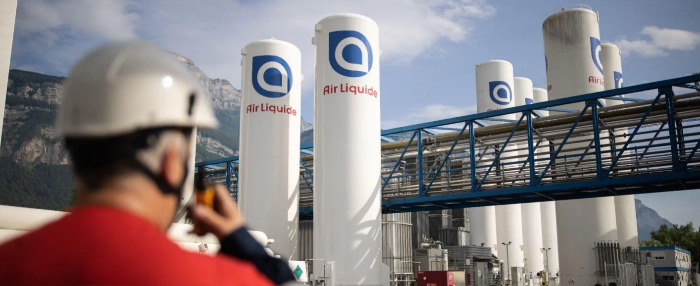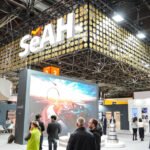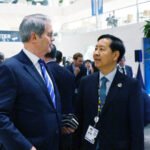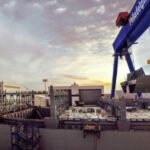
South Korea, home to the world’s top two memory chipmakers, is poised to become Asia’s second-largest industrial gas market in a decade, behind only China, said Air Liquide’s East Asian regional head, a forecast underscoring the French company’s 4.6 trillion won ($3.2 billion) plunge into Korea’s specialty gas sector.
“By 2035, South Korea will likely grow to Asia’s second-largest industrial gas market after China,” Park Il-yong, chief executive officer of Air Liquide’s East Asia Pacific Cluster, said in an interview with The Korea Economic Daily last week.
Korea is currently the third-largest industrial gas market in Asia, after Japan, which is the second-largest, and China, which is the largest.
“That’s why we made this strategic investment. It’s not just about entering a market, but about preparing for the next 10 years,” he said.
In August, Air Liquide acquired a 100% stake in DIG Airgas Co., Korea’s third-largest industrial specialty gas supplier, from Macquarie Asset Management for 4.6 trillion won, the biggest deal for the Paris-based company in a decade and the largest-ever industrial gas M&A in Korea.
With DIG Airgas under its wings, Air Liquide is returning to the Korean industrial gas market 10 years after it exited the country by selling its stake in Daesung Industrial Gases.

Air Liquide, the world’s second-largest industrial gas company after German giant Linde plc., reaped about 45 trillion won in sales in 2024.
DIG Airgas produces industrial gases from refined oxygen, nitrogen and argon gases and counts Samsung Electronics Co., SK Hynix Inc. and many others as its key customers in Korea.
BETTING ON KOREA’S HIGH-TECH BOOM
Park said Korea’s position as a manufacturing powerhouse, home to leading chipmakers, battery producers and automakers, makes it a natural growth engine for the global specialty gas business.
Specialty gases are high-purity or custom-blended gases used in advanced manufacturing, particularly for semiconductors, displays and other high-tech industries that require ultra-clean production environments.
“Demand for industrial specialty gases grows in step with production of semiconductors, cars and batteries,” said Park. “As a major manufacturing base, Korea is highly regarded as a promising market.”
He added that Korea’s industrial gas market is not only expanding in size but also maturing in quality.

“We’re seeing a sharp increase in demand for ultra-high-purity gases in semiconductors and advanced materials,” Park said.
“More than half of Korea’s industrial gas consumption already comes from the chip sector, and as AI semiconductors become more advanced, gas technologies will have to evolve in parallel.”
Air Liquide plans to use Korea as a testbed for developing next-generation specialty gases, according to Park.
“Air Liquide sees Korea as the perfect place to test and commercialize new (gas) technologies thanks to its leadership in semiconductors,” he said.
HYDROGEN: THE NEXT FRONTIER
Beyond specialty gases, Air Liquide is setting its sights on hydrogen, seeing parallels between that market and its existing gas supply infrastructure.
The country is also home to the leading global hydrogen fuel-cell car maker, Hyundai Motor Group, which owns the entire hydrogen value chain under the HTWO brand.
“Hydrogen and industrial gases share similar supply chains and business models,” Park said. “We still view Korea’s hydrogen sector as one of the most promising in Asia” despite the current slowdown.

As Air Liquide plans to accelerate its expansion into the Korean hydrogen market, it is expected to make additional investments or mergers and acquisitions in the Korean hydrogen market.
The company operates a joint venture with Lotte Chemical Co., launched in 2021, to develop a nationwide hydrogen network.
The venture runs two hydrogen plants in the southern industrial city of Yeosu and supplies the clean fuel for transportation, industry and utilities.
“In the short term, we’re focusing on hydrogen for commercial vehicles like buses and trucks,” Park said.
“Over the longer term, we’ll expand into industrial hydrogen for refineries and petrochemical complexes, as well as low-carbon hydrogen produced from green power generation.”
He added that Korea stands out among Asian nations for the consistency and speed of its hydrogen policy rollout.
“Korea has one of the most advanced policy frameworks in Asia,” he said. “If government incentives align with industrial infrastructure, the country could emerge as a global hub for clean energy.”
By Sang Hoon Sung
uphoon@hankyung.com
Sookyung Seo edited this article.















